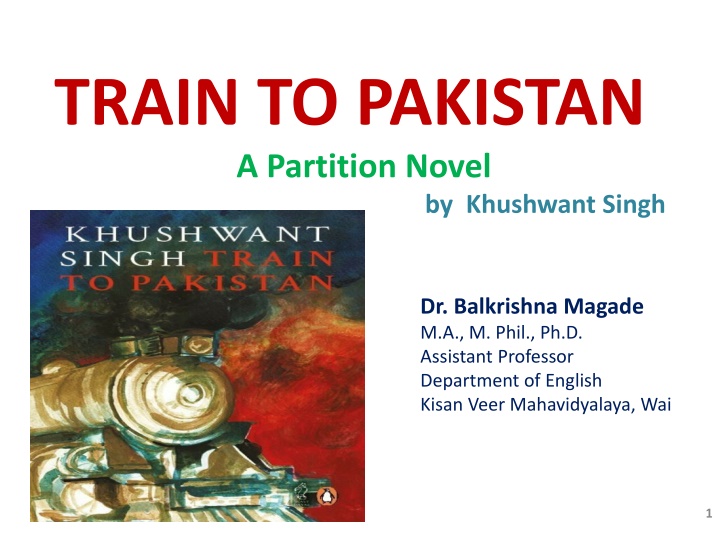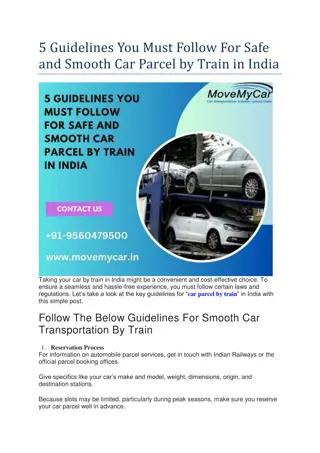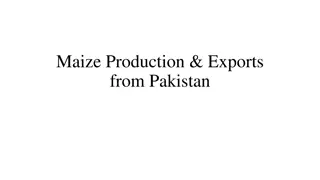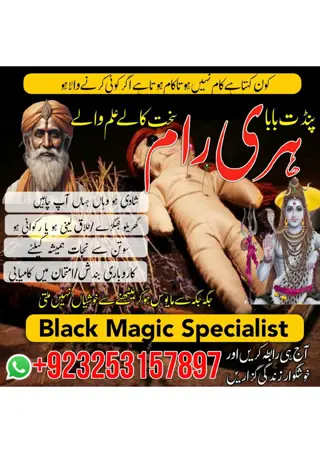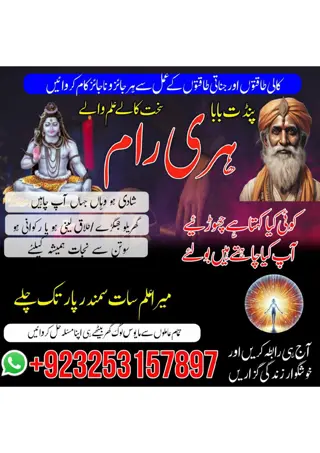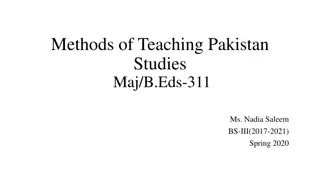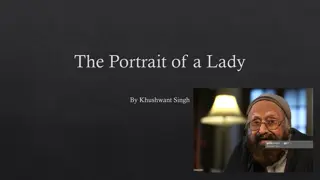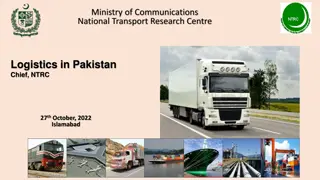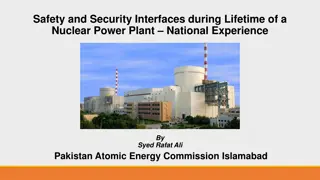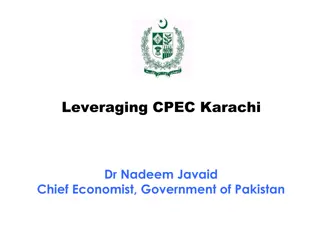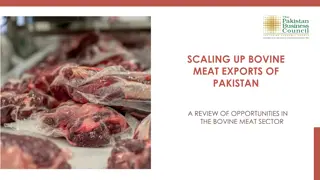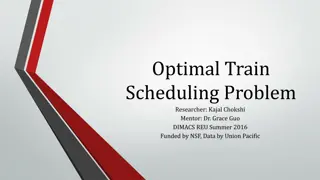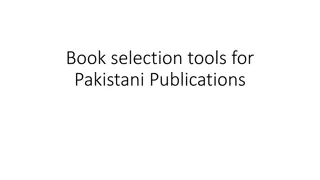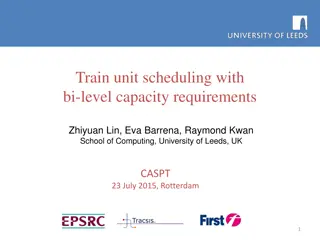Khushwant Singh: Life and Works - Train to Pakistan Novel Summary
Khushwant Singh, a renowned writer and columnist, was born in 1915 in Haladi (now in Pakistan) and educated in Delhi and Lahore. He authored several books, including "Train to Pakistan," a novel on the partition. The novel, published in 1956, depicts the impact of the partition on Mano Majra, a fictional village on the India-Pakistan border. The story is divided into four sections, exploring themes of communal tension, love, and fate. Khushwant Singh's contributions to literature and society, along with his accolades, reflect his significant influence in the literary world.
Download Presentation

Please find below an Image/Link to download the presentation.
The content on the website is provided AS IS for your information and personal use only. It may not be sold, licensed, or shared on other websites without obtaining consent from the author.If you encounter any issues during the download, it is possible that the publisher has removed the file from their server.
You are allowed to download the files provided on this website for personal or commercial use, subject to the condition that they are used lawfully. All files are the property of their respective owners.
The content on the website is provided AS IS for your information and personal use only. It may not be sold, licensed, or shared on other websites without obtaining consent from the author.
E N D
Presentation Transcript
TRAIN TO PAKISTAN A Partition Novel by Khushwant Singh Dr. Balkrishna Magade M.A., M. Phil., Ph.D. Assistant Professor Department of English Kisan Veer Mahavidyalaya, Wai 1
Khushwant Singh: Life & Work Khushwant Singh: Life & Work Born in 1915 in Haladi, (now in Pakistan). Educated in Delhi & Lahore. (B A, LLB) Best known writer and columnist Founder-editor of Yojana Editor, Illustrated Weekly of India, Hindustan Times, National Herald Author of several books: Delhi (1990), Sex, Scotch & Scholarship (1992), Men & Women in My Life (1995), The Company of Woman (1999), Death at My Doorstep (2005), His autobiography: Truth, Love & a Little Malice (2002) A History of the Sikhs (two volumes) 1963,1966 Well known translator
Khushwant Singh continues Khushwant Singh continues A Member of Parliament (1980-1986) Awarded the Padma Bhushan in 1974 Awarded the Padma Vibhushan in 2007 Honoured with the Honest Man of the Year in 2000. Awarded Panjab Rattan in 2006 Sahitya Akademi Fellowship in 2010 Fellow of King s College London in 2014 Died on 20th March, 2014 in New Delhi.
Train to Pakistan: Outline Train to Pakistan: Outline Published in 1956. Divided into FOUR sections/parts/chapters: Section I: Dacoity: (1-80): i. Mano Majra iii. Moneylender looted & murdered v. Communal situation vii. Arrival of Iqbal ix. The Gurdwara meeting xi. At the police station Section II: Kalyug: (81-123): i. The ghost train iii. The ultimate truth v. Plans for Mano Majra vii. Jugga & Malli ii. Trains iv. Jugga & Nooran vi. Hukum Chand & Haseena viii. Punjabi code of Morals x. Arrest to Iqbal & Jugga ii. Images of death & violence iv. Hukum Chand & Haseena vi. Iqbal & Jugga
Outline continues Outline continues Section III: Mano Majra: (124-145): i. Malli & gang in Mano Majra ii. Sikha versus Muslims iii. Nooran s visit to Jugga s mother iv. Leaving Mano Majra Section IV: Karma: (146-190): i. The face of death ii. The provocation iii. Helpless & resigned iv. Jugga, Iqbal released v. Jugga s resolve vi. Tryst with destiny vii. The real hero
Outline Outline continues continues PLACES Mano Majra: a small fictional village on the India-Pakistan border, a few miles from Lahore, locale of the novel, located on the banks of Sutlej, the largest river in the Punjab, on north railway bridge, officers rest house, population: half Sikh & half Muslim, seventy families Three brick buildings: the home of the moneylender Lala Ram Lal; Gurdwara: a Sikh temple (people gather in times of trouble) & the mosque Railway station: a small colony of shopkeepers & hawkers, No express trains stop, only passenger trains, 10.30 morning passenger from Delhi, Evening passenger from Lahore Railway bridge: a mile north of Mano Majra, Backdrop:partition 1947
Characters Characters Juggut Singh Son of dacoit Alam Singh, Jugga or Juggia to his fellow-villagers, badmash number ten of the village Tallest & most violent person Six-foot-four lusty Sikh peasant In & out of jail No ill-will towards policemen Cracks vulgar jokes with police View that M K Gandhi s govt in Delhi after India s partition Truly in love with Nooran, daughter of Imam Baksh Once a member of Malli s gang While in jail shares a cell with Iqbal Singh His DEATH: the supreme sacrifice he made in order to redeem himself
Characters: continues Characters: continues Hukum Chand Magistrate & Deputy Commissioner His DUTY: to maintain law & order of the area a nar adami a real man corpulent (fat) and married Started career as a foot constable, promotion upto Deputy A clever person, a Hindu of lower-middle-class origin True to his friends, in his fifties Cordial but firm in his business/doings Relationship with Haseena, the child prostitute, young as his own daughter, he fondles & pampers her Lived with an unattractive wife Spent nights in crematoriums to calm his nerves
Characters: continues Characters: continues Iqbal: The young educated communist (a political worker) Wearing a long white shirt, brown waistcoat of coarse cotton, & loose pajamas At the gurdwara, the priest Meet Singh greeted him & stayed in guestroom Politely refused food from the gurdwara as he had his own food A social worker (from Jhelum district) Twenty-seven, unmarried Does not believe in religion Eat fish complete with head, eyes and tail Lecture to Meet Singh: how the police system in the country is corrupt to the core Everyone praised: the British officers are considerate of their Indian subordinate Iqbal called the British: a race of four-twenties Lacks the qualifications for leadership: not fasted nor made any sacrifice for the party Wants a safe passage to leadership Has been arrested as a Muslim (Mohammad Iqbal) [Iqbal Chand=Hindu, Iqbal Singh= Sikh] An armchair philosopher
Characters: continues Characters: continues Nooran Daughter of the blind weaver Imam Baksh The sweetheart of Jugga Meet at night on the river bank Ready to leave Mano Majra along with other Muslims Her only hope in violence: Jugga Haseena A young prostitute (16-18) Wears a black, sequined sari identifies herself as a singer and dancer Used for entertainment & sexual gratification of Hukum Chand Left Chundunnugger with all the other Muslims & to cross over to Pakistan in the train (with Nooran)
Characters: continues Characters: continues Meet Singh The old Sikh priest of the gurdwara of Mano Mujra Owns some land Easygoing at heart, short, fat, and hairy Working in the field, now handed over to Muslim tenants Lives on the offerings of the villagers Mumbles from prayer book: All the Guru s word is good. What do you have to do with meaning? If you are going to do something good, the Guru will help you. Helped Jugga in his mission
Characters: continues Characters: continues Imam Baksh Everyone calls him Chacha (uncle) A blind mullah of the village mosque Enjoys the affection & respect of the villagers The leader & the spokesman of the village community A weaver by profession, His wife & only son died Teaches the holy Qoran to children in the mosque Gets offerings from villagers Has an amazing fun of anecdotes & proverbs
Characters: continues Characters: continues Banta Singh The lambardar (headman) of Mano Mujra Collects revenue from the peasants on behalf of the govt. As hereditary: everyone calls him lambardara Liaises between the villagers and the police Informed police about Ram Lal s murder Tries to maintain peace & communal harmony in the village Lala Ram LaI A wealthy Hindu in Mano Majra The moneylender, Had brick building His the only Hindu family, venerate (worship) Malli & his gang looted and murdered him He had given Juggut money once to pay lawyers while his father,Alam, was in jail
Characters: continues Characters: continues Juggut s mother No name is given lives with her son disapproves of his relationship with Nooran Nooran goes to Juggut s mother for help Malli The leader of the dacoity against Lala Ram Lal Arrested and placed in a cell next to Juggut and Iqbal Singh After Muslims leave Mano Majra, Malli is appointed by Sikh officers to be a custodian of the departed Muslims property Participates in the plot to kill Muslim refugees going to Pakistan. Malli & his gang looted and murdered Lala Ram Lal
Characters: continues Characters: continues The Sub-inspector / Inspector Sahib A Hindu official who works for the police and under Hukum Chand Falsely imprisons Iqbal and Juggut Singh for the murder of Lala Ram Lal under orders from Hukum Chand plots against Iqbal and threatens Juggut to get the names who committed the robbery Prem Singh Hukum Chand s Sikh colleague takes trips to Lahore, Pakistan to buy his wife jewelry spends a lot of time at Faletti s Hotel The Englishmen describe him as a nice old Wog The English do not respect him as an equal
Characters: continues Characters: continues Sundari The daughter of Hukum Chand s orderly Married to Mansa Ram for four days when a group of Muslims surround their bus on the way to Gujranwala They strip her husband naked and cut off his penis The mob then rape her Smash the red lacquer (polish) bangles that she had been given for good luck after their marriage. Sunder Singh A Sikh soldier The government gives him land in Sindh, Pakistan He kills his wife and three children to relieve them of their severe hunger and thirst Makes his way to Pakistan
Characters: continues Characters: continues Boy Leader a lad (young man) somewhat effeminate (womanish) in his youthful appearance an aggressive teenage soldier encourages the Sikhs of Mano Majra to murder Muslims persuades a crowd with a speech says that the male villagers should kill two Musulmans for every Sikh and Hindu that the Muslims kill.
Train to Pakistan: The Story Train to Pakistan: The Story Initially named as Mano Majra Renamed as Train to Pakistan Refers to the partition took place in 1947 Both are significant I. Mano Majra A small village, 70 families, Hindu & Muslim equal Mano Majrans lived happily no wind of freedom movement Iqbal: Why the British left India? Mano Majrans: They were better persons & better rulers Mano Majrans blessed with ignorance Needed more land & more buffaloes Title
The Story continues The Story continues I. Mano Majra The idea of freedom: peace & harmony (Ganadhi s concept of freedom freedom from poverty, untouchability, illiteracy, etc.) whereas country is torn vertically by communal hatred Free from evils of hatred, communal prejudices, revenge etc. Mano Majra: example of communal harmony Never think of raping women or grabbing the properties of people in disaster No need of philosopher to tell that one should not punish the innocent; to teach the principles of morality Spirit of good will & communal harmony So the full chapter on Mano Majra Mano Majrans: models of love & humanity
The Story continues The Story continues II. Train to Pakistan Strong reaction against Pakistan s barbarity What the novel is about Idea of the time of action, The great turmoil A better choice & accepted by all Two sovereign states - secular India & Islamic Pakistan Khushwant Singh as a journalist: process of partition riots broke out at several places starting from Calcutta, riots spread like wild fire to Bihar & UP. Trains full of dead bodies coming from & going to Pakistan. The Muslims blamed the Hindus & vice versa. Both the communities were equally to blame. Both shot & stabbed, speared & clubbed. Both tortured, both raped. Conflict between non-violence & violence
Satirical Aspects of the Story Satirical Aspects of the Story To put the society on the right track Mano Majrans: far away from western civilization Firstly, Priest of the village: malingerer: idler e.g. Meet Singh: had land but leased out, living with the rent & the offerings at the temple,Not learned yet a priest, rather untidy & indecent, in dirty shorts & unkempt hair. Lack of social justice: e.g. Jugga & Malli controversy Iqbal: No, Bhaiji, criminals are not born. They are made by hunger, want & injustice. Hukum Chand: several promotions foot-constable to Magistrate dozen of relatives in good jobs To praise a man who holds high position
Satirical Aspects: continues Satirical Aspects: continues Police: Critical of Indian police A nuisance Iqbal: There is police system which, instead of safeguarding the citizen, maltreats him & lives on corruption & bribery. Unjust in case of Jugga Malli, the real culprit, without any punishment Forces people to become criminals: Iqbal There is no crime in any one s blood any more than there is goodness in the blood of others. Act thoughtlessly arrested Jugga invariably Dirty tricks to arrest innocent man: Iqbal Behaves rudely with everybody
Satirical Aspects: continues Satirical Aspects: continues Bribe: Critical notion in Indian e.g. The sub-inspector sent singers to Hukum Chand Hukum Chand: I don t mind your taking whatever you do, within reason of course, - everyone does that only be careful. WELCOME: Chundunnuger Police Station: Nobody would like to be welcomed at the police station Picture of King George VI: Bribery is crime Gandhiji sportrait: Honesty is the best policy
Satirical Aspects: continues Satirical Aspects: continues Indians: 1. uneducated: Imam Baksh, Jugga, Meet Singh 2. Superstitious: Almighty will punish the wrong doers: Truck carrying Baluch soldiers crushed into a tree to avoid a dog, Many innocent passers-by were killed by them, Who crushed the truck? DOG or GOD. 3. Reactionary: Nooran, Imam Baksha, Lambardar etc. Society: sections & classes BUT: Meet Singh & Lambardar not backward looking persons, Preach & practices high values: brotherhood, forgiveness, etc. Lambardar: to go the refugee camp while the trouble is on. You lock your houses with your belongings we will look after your cattle till you come back
Satirical Aspects: continues Satirical Aspects: continues Indian philosophy & yoga: Indians gift to the world BUT Iqbal: 1. Yoga, that excellent earner of dollars! Stand on your head. Sit across and tickle your novel with your nose 2. No respect for any religion: modern tendency: Foolishly criticized all the religions: i. Hindu: caste & cow protection ii. Islam: circumcision & kosher meat iii. Sikh: long hair & hatred of the Muslims iv. Christianity: Hinduism with a sola topee Came to stop incurrence of violence: BUT does nothing at any stage Thinks: When people go about with guns & spears you can only talk back with guns & spears.
Effects of Partition & Portrayal of it in Literature Effects of Partition & Portrayal of it in Literature Affected the normal lives of millions of people across the Indian subcontinent Communal riots: post partition period Affected writers: different religions, castes, sects, etc. Politics of communal leaders Politics of partition End of the British colonialism Migration mass scale CRIMES: murders, rapes, brutality Horror/ Horrible incidents disturbed the peace of the region, homes were burnt, villages abandoned, sexual humiliation, suicides
Effects of Partition & Portrayal of it in Literature Effects of Partition & Portrayal of it in Literature Vividly reflected in literature Actual scenes of partition days The grief of partition at first hand Brutal tragedy of the partition GIVES rise to fictional exploration: Faithfully recorded the Partition as a REALITY A. Inner turmoil & B. Social complexes MAJOR THEMES: i. Incredible anguish/suffering ii. Bewilderment (of the people of the subcontinent) iii. Refugee migrations: their difficulties
Effects of Partition & Portrayal of it in Literature Effects of Partition & Portrayal of it in Literature Wrought havoc in the sub-continent Everybody in a traumatic state The worst victims: WOMEN: sexually assaulted, abducted, raped, disfigured, forced into marriage, etc. Families torn apart, * Cities were changed forever Lot of zulum Pakistani Magistrates: millionaires overnight Pakistani police & army: took sides in communal violence The ghost train: corpses of Sikhs & Hindus from Pakistan Darkness of violence: There was a man holding his intestine, with an expression in his eyes which said: Look what I have got! There were women & children huddled in a corner, their eyes dilated with horror,
Darkness of violence Darkness of violence Corpses of men, women and children as well as carcasses of cattle are thrown up by the river waters; . Some corpses drifted near the bank Some were without limbs, some had their bellies torn open, many women s breasts were slashed. They floated down the sunlight river, bobbing up & down PLAN: murder all Muslim refugees on board of the train carrying over to Pakistan In short, Dacoity: reports of communal riots, mindless killing of the people, arrest of Iqbal Kalyug: the train full of dead bodies, Hukum Chand with Hassena: a girl of the age of his daughter justifies title Karma: the karma of Jugga, his sacrifice
Other works to be considered Other works to be considered 1. Alipur Ka Ali: Mumtaz Mufti: Narration - an account of transportation of his family from Bharat to Lahore on a truck, several scenes of slaughters, loots, rapes, etc.==? 2. Pinjar: Amrita Pritam: a story of Hindu girl, kidnapped by a Muslim youth 3. Tamas: Chaman Nahal: communal riots in small town (tv serial) a sweeper boy Nathu killed a pig in mosque- massacred law & order disturbed AZADI: himself as a refugee (journey from Pakistan to India), 3 sections (TP: 4 sections) chaos, horrible incidents, 4. The Shadow Lines: Amitav Ghose: futility (uselessness) of the partition, Thamma
Other works to be considered Other works to be considered 5.Ice Candy Man: Bapsi Sidhava: Backdrop communal riots in Lahore 6. Train to Pakistan: K Singh: pitiful account, peaceful country life, inter-racial harmony, Partition & Independence: do not really mean much to them, gossip suddenly becomes reality, Juggut Singh a ray of hope & peace Some short stories: 1. Manto: 1. The Reunion : rape on Muslim girl shame & guilty ; 2. Toba Tek Singh : Bishan Singh 2. K A Abbas: Revenge 3. Kartar Singh Duggal: Kulsum
